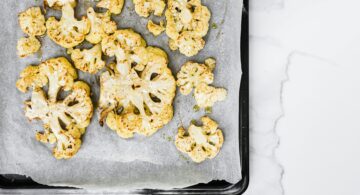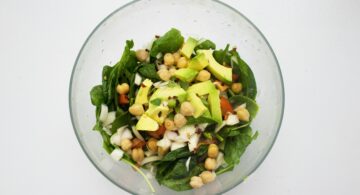7 Surprising Reasons to Eat More Beets
I love just about anything pickled and one of my all-time favorites is pickled beets. Not only are beets a natural, whole food, but they are power-packed with nutrients with unbeatable benefits for your health. And what’s more, when you buy fresh beets, you’re getting two vegetables for the price of one, because beet greens are also a highly nutritious, tasty food.
Background of Beets
Beets, or beetroots as they’re often called, have been cultivated for at least 4,000 years. They appear to have originated near the Mediterranean and have spread around the world ever since. Beets are commonly eaten in Europe and Russia is renowned for its borsht—a soup made from beets.
If you’re a gardener, beets are relatively easy to grow, and their broad, fleshy, dark-green leaves add to the beauty of any garden. And because beets are a root vegetable, they boast a longer shelf-life than other more “fragile” vegetables.
As a food source, beets are incredibly versatile. While beets are not everybody’s favorite, you’re sure to find more than one way to enjoy these healthy tubers. You can eat them:
- Raw
- Pickled
- Boiled
- Roasted
- Grilled
- Juiced
- Steamed
- Sautéed
- In salads
- In soups
- In vegetable medleys
- And in just about any other form you can think of
Beets are also used as a source of sugar. Much of Europe’s sugar comes from beets. Most of us think of beets as red, but beets also come in orange and yellow. Red beets with their rich, red color also provide a natural source of red food dye. But note that when eaten its powerful pigment also turns urine and stools red—but not to worry—it’s a harmless effect of eating beets.
Nutritional Value of Beets
Both the roots and the greens of beets are highly nutritious. They contain:
- Vitamins: A, B6, C, Thiamin, Riboflavin, Niacin, Folate, Pantothenic Acid, Choline, and Betaine
- Minerals: Calcium, Iron, Magnesium, Phosphorus, Potassium, Zinc, Copper, Manganese, Selenium, Boron, and Sodium
- Phytonutrients: Betalains, Lutein, Nitrates and Zeaxanthin
- Flavonoids: Anthocyanins
- Fiber
- Few calories
Health Benefits of Beets
Beets are unbeatable when it comes to health benefits! But let’s start with the serious benefits first and leave the fun ones till the end. Beets and beet greens:
1. Promote heart health.
The choline in beets helps fight inflammation in the body that increases the risk of heart disease and atherosclerosis. Also, the fiber in beets helps reduce cholesterol and triglycerides and increases the levels of HDL (good) cholesterol. As a result, heart attacks and stroke are less likely to occur.[1],[2]
2. Reduce blood pressure.
High blood pressure is responsible for a number of dangerous health risks. The nitrates in beets help relax and dilate the blood vessels, lowering blood pressure. A study published in Hypertension demonstrated that subjects who drank beet juice showed a 10-point reduction in blood pressure. The study concluded, “Thus, dietary nitrite [as found in beets] may reduce cardiovascular risks through a low cost and natural procedure as opposed to the expensive and typically multi-drug approach.”[3]
3. Fight risk of Alzheimer’s disease.
Alzheimer’s is a terribly debilitating disease that eventually claims the life of its victims. Once again, we have the nitrates in beets to thank for increased blood-flow throughout the body, including to the brain.[4]This decreases the risk of Alzheimer’s and dementia. Now that’s food for thought!
4. Help prevent cancer.
It turns out that the bright color of beets isn’t just for looks. The pigment contains powerful phytonutrients called betalains that fight cancer. Betalains have been shown to help prevent cancer in many organs of the body.[5]Both animal and human studies are demonstrating the ability of beetroot extract to reduce tumors in a variety of organs.[6](And it does it without making the subjects deathly ill in the process as with chemotherapy and radiation!)
5. Detox the blood.
Glutathiones are required by the liver to help detoxify the blood. It so happens that beets are rich in these essential compounds. Therefore, beets can help cleanse your body of heavy metals, toxins, and other waste materials. Then the fiber in beets help flush out these toxins through the bowels.[7] Every time you eat beets or drink beet juice, you’re giving yourself a whole-body cleanse.
6. Boost energy and stamina.
Beets help beat fatigue and weakness. Once again, we have the nitrates in beets to thank for their athletic prowess. A double-blind, placebo-controlled, cross-over study involving eight men, revealed increased stamina and less muscle fatigue in those men who had consumed 500 ml of beetroot juice per day for six consecutive days. The men were able to cycle hard 15% longer than those who drank the placebo.[8]The nitrates increase the oxygen uptake by the body, thus accounting for the increased performance.[9]What’s in your sports drink?
7. Enhance your libido.
Didn’t I tell you we’d get to the fun stuff? The world over, people have turned to beets as an aphrodisiac. But not until recently did we discover the presence of the mineral boron in beets, and boron’s ability to boost libido in humans.[10]The nitrates in beets do their part as well by increasing blood flow to the reproductive organs.[11]What with increased circulation, stronger sex drive, and more stamina, you’ve got the perfect recipe for improved performance in the bedroom! Men, why not trade in the blue pill for a red veg?!
Of course, another fun aspect of beets is finding delicious ways to integrate them into your diet. And if you’re not a beet-lover but want to take advantage of its litany of health benefits, you can always chug down a glass of beet juice. You can buy it ready-made or blend your own by itself or mixed with other tasty juices.
Here’s a tasty beet dish from Simply Recipes:
Red Flannel Hash Recipe
Red flannel hash is a New England favorite and a simple, one-skillet dinner that’s packed with nutrition and flavor. [12]
Ingredients
- 4 Tbsp butter
- 1 cup chopped onion
- 2 cups chopped pre-cooked corned beef
- 1 ½ cup chopped boiled beets (don’t over-cook)
- 1 ½ cup chopped boiled organic potatoes (don’t over-cook)
- 1 tsp Worcestershire sauce (if desired)
- ¼ cup (packed) chopped fresh parsley (if desired)
- Freshly ground black pepper to taste
- Experiment with other delicious seasonings if you like
Directions
- Heat butter in a frying pan (cast iron is best) on medium-high heat. Add the onions and cook until translucent.
- Add the pre-cooked corned beef, potatoes, and beets. Stir well to mix and spread them out evenly in the pan. Reduce heat to medium and press down on the mixture with a spatula to help brown it. Don’t stir but let it brown on one side. Then using a spatula, turn sections of the mixture over to brown on the other side. Add a little butter if the mixture sticks to the skillet too much.
- When nicely browned, remove from heat. Sprinkle in Worcestershire sauce, if desired. Stir in fresh chopped parsley and sprinkle in black pepper to taste. The corned beef may make the dish salty enough, but if not, salt to taste.
- Serve as is or with fried or poached eggs.
You can’t beat beets for versatility for both health and the palate. I’ve learned several new things about beets just writing this article and it has spurred me to try beets in ways I’ve never tasted. How about you? What will be your next beet quest?
This salad incorporates liver-loving beets, arugula, and apples. It is the perfect summer dish and a great way to incorporate beets into your diet. Some of the most nutrient dense foods have the most pigment dense colors! One of these natural weapons for joint pain includes beets.

























